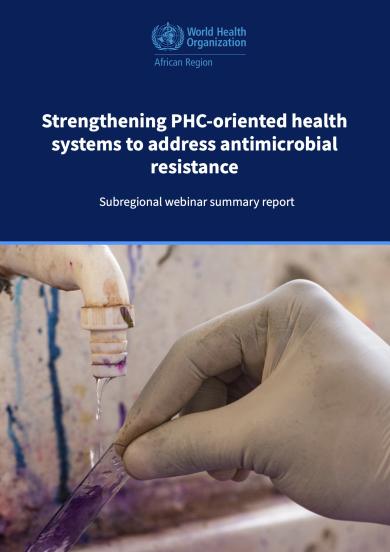
Strengthening PHC-oriented health systems to address antimicrobial resistance: Subregional webinar summary report
Antimicrobial resistance (AMR) is one of the ten key threats to global health and infections caused by AMR pathogens are spreading rapidly across the world. In 2019, bacterial AMR resulted in approximately 1.27 million deaths and contributed to an additional 4.95 million deaths globally. This exceeds deaths caused by HIV/AIDS and malaria and is a higher death toll than previously reported. To contain AMR, WHO Member States endorsed the Global Action Plan (GAP) on AMR in 2015 and committed to developing national action plans (NAP) on AMR. Progress has been made with 47 Member States having developed a NAP on AMR; however, sustainable implementation continues to face challenges. Over 50% of these plans are not costed and budgeted, and implementation is often fragmented, without recognizing the interdependencies of interventions and their links with other health systems strengthening efforts. It is essential to link/mainstream AMR interventions at the country level more firmly with health systems strengthening efforts including to achieve UHC through primary health care (PHC) approach lens and building capacity for pandemic preparedness and response efforts.


